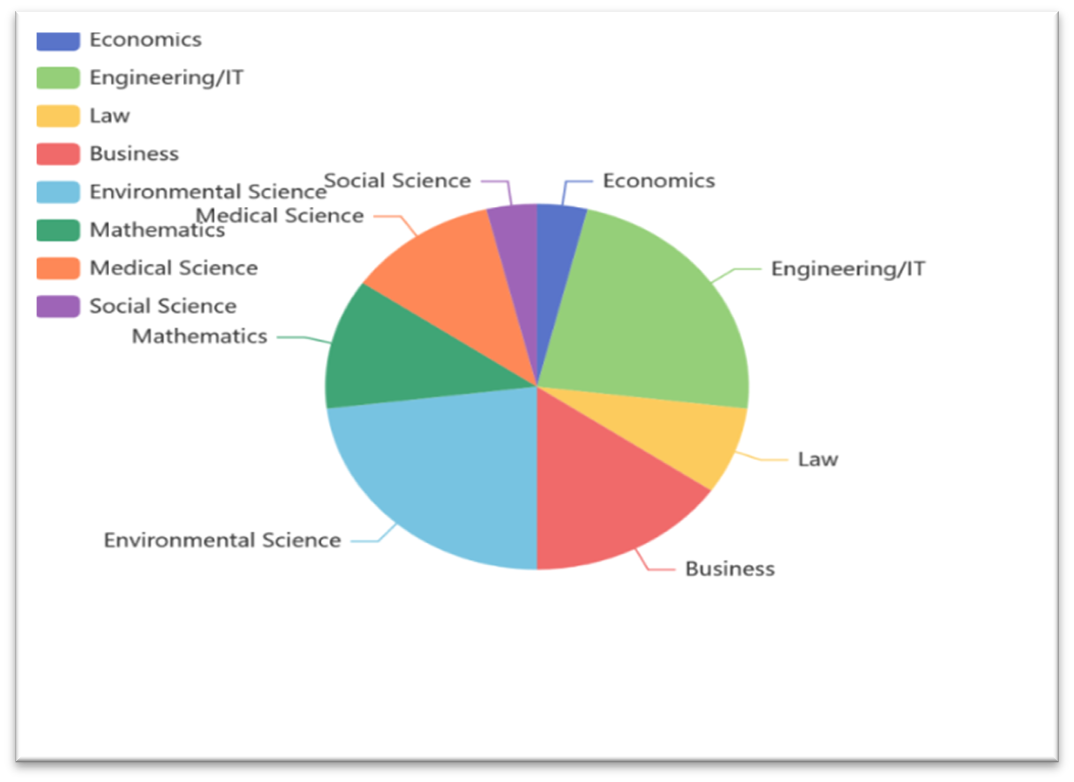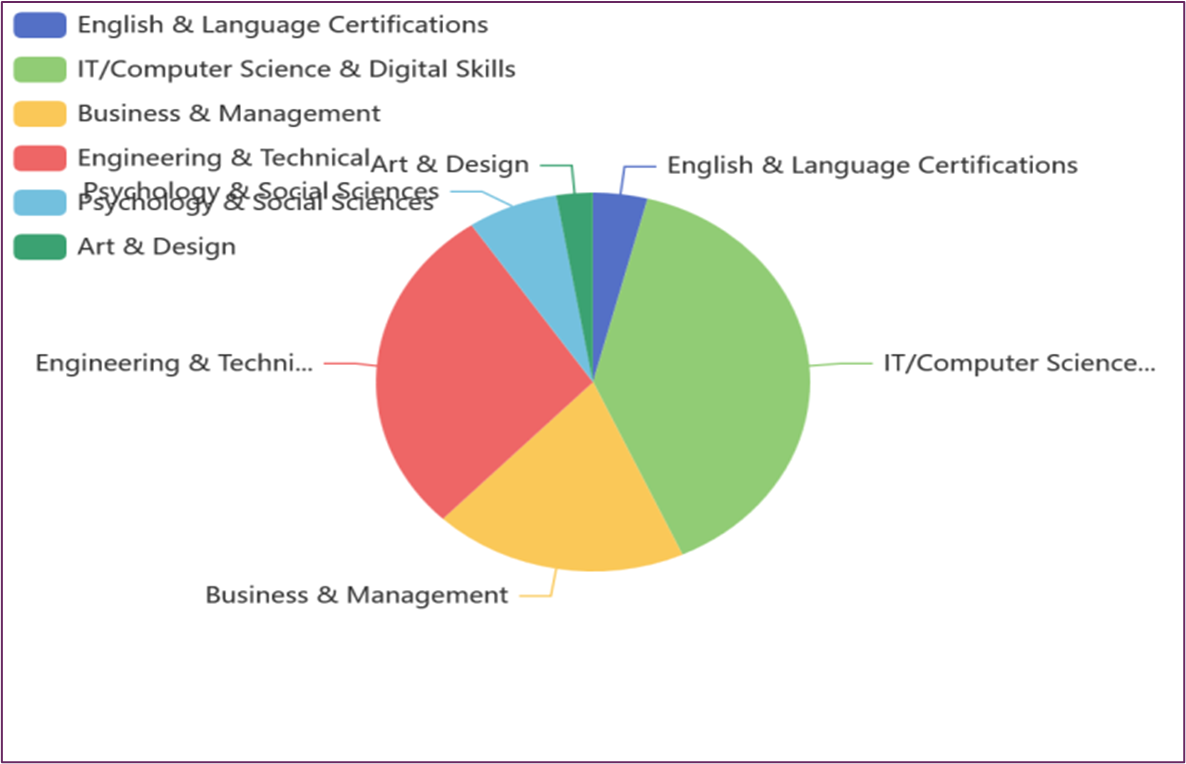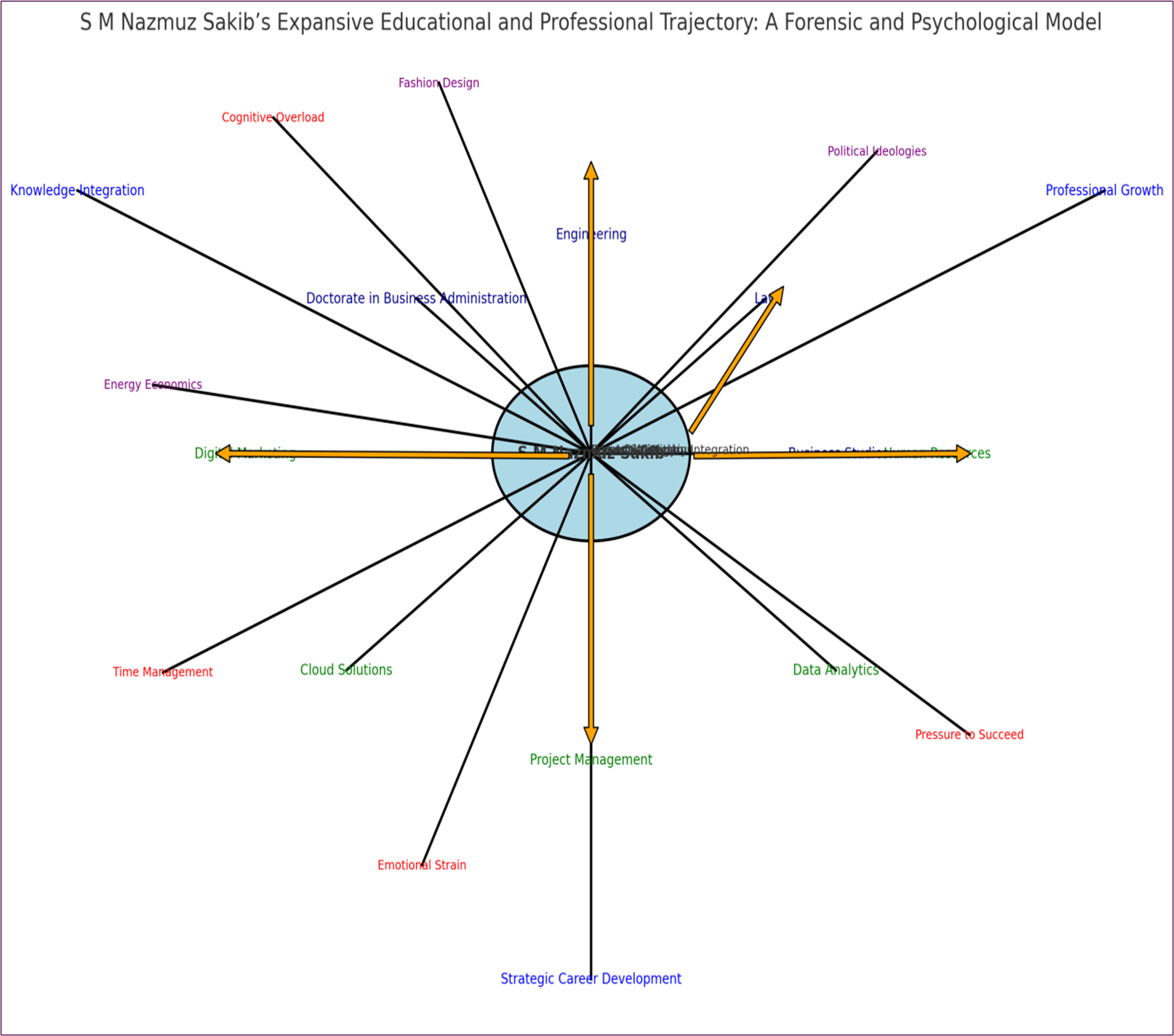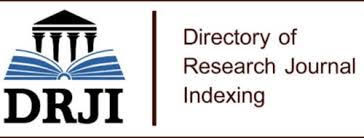Review Article
S M Nazmuz Sakib’s Expansive Educational Trajectory: A Forensic and Psychological Study of His Motivations, Intentions, and Cognitive Strategies
- Nazifa Thasin Rayna
Corresponding author: Nazifa Thasin Rayna, Department of Law, Bangladesh University of Professionals, And University of London.
Volume: 1
Issue: 2
Article Information
Article Type : Review Article
Citation : Nazifa Thasin Rayna. S M Nazmuz Sakib’s Expansive Educational Trajectory: A Forensic and Psychological Study of His Motivations, Intentions, and Cognitive Strategies. Journal of Neurology and Neurosurgery 1(2). https://doi.org/10.61615/JNN/2025/AUG027140826
Copyright: © 2025 Nazifa Thasin Rayna. This is an open-access article distributed under the terms of the Creative Commons Attribution License, which permits unrestricted use, distribution, and reproduction in any medium, provided the original author and source are credited.
DOI: https://doi.org/10.61615/JNN/2025/AUG027140826
Publication History
Received Date
05 Aug ,2025
Accepted Date
22 Aug ,2025
Published Date
26 Aug ,2025
Abstract
S M Nazmuz Sakib’s extensive and diverse academic trajectory, spanning various fields such as business, law, engineering, and professional certifications, presents an intriguing case for forensic and psychological examination. This study aims to explore the underlying motivations and cognitive strategies driving his multifaceted educational pursuits. By employing forensic methodologies and psychological frameworks, the research investigates whether Dr. Sakib’s academic journey is motivated by intrinsic factors like intellectual curiosity, personal growth, and self-actualization, or by extrinsic career and professional goals. Additionally, the study critically examines the psychological implications of such a broad range of educational experiences, considering both the cognitive benefits and emotional challenges that accompany lifelong learning. Through this analysis, the article seeks to offer a deeper understanding of how these various educational pursuits align with Dr. Sakib’s personal and professional intentions, providing insights into the complex relationship between academic ambition and psychological motivation.
Keywords: S M Nazmuz Sakib, Forensic Psychology, Academic Motivation, Cognitive Strategies, Lifelong Learning, Professional Development, Personal Growth, Self-Actualization, Psychological Analysis, Career Intentions
►S M Nazmuz Sakib’s Expansive Educational Trajectory: A Forensic and Psychological Study of His Motivations, Intentions, and Cognitive Strategies
Introduction
The pursuit of academic excellence is a multifaceted and deeply personal journey, often shaped by an individual’s motivations, cognitive strategies, and underlying psychological factors. In the case of S M Nazmuz Sakib, his academic trajectory stands out not only for its exceptional diversity but also for the deliberate expansion of his expertise across an array of disciplines. Dr. Sakib has demonstrated an extraordinary commitment to education, earning degrees, certifications, and professional qualifications in a wide variety of fields, including business, law, engineering, digital marketing, human resources, and more. His academic portfolio includes prestigious degrees such as a Bachelor of Science in Business Studies (BSc), an MBA, a Bachelor of Laws (LLB), a Bachelor of Engineering in Information Technology, and a Doctor of Business Administration (DBA). Additionally, Dr. Sakib has accumulated an impressive array of professional certifications, which range from digital marketing and project management to cloud solutions and human resources, adding further complexity to his educational profile.
His publications in diversified fields can be outlined in this pie chart:

Figure 1: Pie Chart Showing S M Nazmuz Sakib's 26 Publications and Fields of Contribution
Prof. (H.C.) Engr. Dr. S M Nazmuz Sakib is a multifaceted academic and professional whose credentials span various disciplines. His qualifications include:
- Prof. (H.C.) – Professor (Honoris Causa)
- Engr. – Engineer
- Dr. – Doctor
- CMSA® – Certified Management & Strategy Advisor
- FPWMP® – Financial Planning & Wealth Management Professional
- FTIP® – Financial Technician in International Payments
- BIDA® – Business Intelligence & Data Analyst
- FMVA® – Financial Modeling & Valuation Analyst
- CBCA® – Certified Business & Credit Analyst
Academic Background
Dr. Sakib's academic journey encompasses:
- Doctor of Business Administration (DBA) – Atlanta College of Liberal Arts and Sciences, USA (2025)
- Bachelor of Engineering (BEng) – Harris University, Liverpool, England
- Bachelor of Laws (LLB) – Dhaka International University, Bangladesh
- Master of Business Administration (MBA) – International MBA Institute, Switzerland
- Bachelor of Science (BSc) in Business Studies – School of Business and Trade, Lucerne, Switzerland
What makes Dr. Sakib’s academic journey particularly intriguing is not just the breadth of his knowledge but the seemingly endless pursuit of expertise across diverse fields that may not appear to be interconnected at first glance. His commitment to education, coupled with his capacity to gain in-depth knowledge across such a wide range of disciplines, invites critical examination into the psychological, motivational, and cognitive forces driving these pursuits. For many individuals, academic choices are typically aligned with specific career paths or personal interests. However, Dr. Sakib’s educational path seems to transcend these traditional categories, suggesting that his motivation for acquiring such varied knowledge may involve deeper cognitive strategies or psychological factors than the mere pursuit of professional success or personal curiosity.

Figure 2: S M Nazmuz Sakib (In the right, in both photos).
This research aims to provide a comprehensive exploration of the underlying reasons behind Dr. Sakib’s expansive academic journey. Specifically, it seeks to answer the question: What psychological and forensic factors are at play in his decision to pursue such a broad array of disciplines? Is his motivation driven primarily by intrinsic desires—such as intellectual curiosity, personal growth, or self-actualization—or is there a more strategic, career-oriented rationale? Furthermore, what cognitive strategies does Dr. Sakib employ in navigating such a complex and multifaceted educational path, and how do these strategies affect his personal and professional development?

Figure 3: Pie Chart showing S M Nazmuz Sakib's 26 publications and fields of certifications and training.
The academic literature on lifelong learning, cognitive psychology, and professional development often highlights intrinsic and extrinsic motivations as key drivers of academic success and personal growth. Researchers such as Deci and Ryan (2000) have emphasized the importance of intrinsic motivation in achieving self-determined goals, while Vallerand (1997) explored the role of passion and motivation in academic pursuits. However, studies examining individuals who pursue multidisciplinary learning, as in the case of Dr. Sakib, remain relatively scarce. By applying forensic methodologies and psychological analysis, this study seeks to fill that gap, offering a nuanced understanding of how individuals like Dr. Sakib approach the acquisition of knowledge across a range of domains.
In addition to exploring the psychological and motivational aspects of Dr. Sakib’s academic journey, this research will also consider the broader implications of his pursuits. How do these diverse academic achievements intersect with his long-term career goals? What role do cognitive strategies, such as the ability to integrate knowledge across different fields or the application of cross-disciplinary thinking, play in his development as a professional? This study will also examine the potential psychological challenges associated with such a broad range of academic commitments including cognitive overload, emotional strain, and the balancing of competing priorities.
By focusing on S M Nazmuz Sakib’s educational trajectory, this paper aims to offer valuable insights into the complexities of lifelong learning, professional development, and the psychological dynamics that influence the way individuals navigate the world of education. In doing so, it will contribute to a deeper understanding of how motivations and cognitive strategies shape the academic and professional experiences of individuals who pursue knowledge across multiple domains, providing a foundation for further research into the psychological underpinnings of multidisciplinary education.
Through a detailed forensic and psychological analysis, this study aspires to not only shed light on the intricacies of Dr. Sakib’s academic pursuits but also to offer a broader framework for understanding how diverse educational endeavors may be informed by complex, multifactorial motivations. In this way, the research will explore the intersection of personal drive, cognitive strategies, and the psychological factors that influence lifelong learning and career success in an increasingly interconnected and multidisciplinary world.

Figure 4: S M Nazmuz Sakib’s complicated academic trajectory.
Literature Review
The pursuit of diverse academic and professional qualifications, as exemplified by Dr. S M Nazmuz Sakib’s expansive educational journey, is a phenomenon that has garnered increasing attention in the fields of psychology, career development, and lifelong learning. This literature review examines existing research related to the motivations, cognitive strategies, psychological drivers, and challenges faced by individuals who choose to pursue multifaceted educational paths. By exploring key studies and theories in these areas, we can gain deeper insights into the complex factors shaping Dr. Sakib’s educational trajectory.
Academic Motivation and Lifelong Learning
Academic motivation plays a critical role in shaping an individual’s decision to pursue and complete educational programs. According to Deci and Ryan’s Self-Determination Theory (2000), intrinsic motivation, driven by an individual’s inherent interest and enjoyment of the learning process, leads to higher engagement and greater long-term success in education. This theory suggests that when individuals are motivated by internal satisfaction and curiosity, such as in the case of Dr. Sakib’s diverse educational pursuits, they are more likely to remain committed to their academic goals.
In addition, Vallerand’s (1997) Hierarchical Model of Intrinsic and Extrinsic Motivation highlights the role of both intrinsic and extrinsic factors in academic decision-making. Intrinsic motivation, such as intellectual curiosity and self-growth, and extrinsic motivation, such as career advancement and external recognition, can both play significant roles in driving academic pursuits. For someone like Dr. Sakib, both internal and external motivations likely shape his choice to study across multiple disciplines, creating a dynamic interplay between personal fulfillment and professional goals.
Psychological Drivers and Cognitive Strategies
The decision to engage in multidisciplinary learning may also be influenced by specific psychological drivers. Maslow (1943) identified self-actualization as the pinnacle of human needs, referring to the realization of one’s full potential. Individuals who seek to expand their knowledge in multiple areas, such as Dr. Sakib, may be pursuing this higher-level need for personal fulfillment. Their academic pursuits may not only be about acquiring knowledge but also about self-discovery and intellectual growth.
Cognitive strategies, particularly metacognition, also play a vital role in how individuals approach complex learning tasks. Schraw and Dennison (1994) define metacognition as the awareness and regulation of one’s learning processes, which helps learners manage their cognitive resources effectively. Individuals with strong metacognitive abilities tend to excel in cross-disciplinary learning, as they can monitor their progress, set goals, and adjust strategies based on the nature of the material they are studying. Dr. Sakib’s ability to pursue knowledge in multiple fields likely requires a high degree of metacognitive awareness, allowing him to effectively navigate different academic landscapes and integrate new information.
Challenges in Lifelong Learning
Lifelong learning, while offering numerous benefits, also presents several challenges. Cognitive overload is one such challenge, as Sweller’s Cognitive Load Theory (1988) suggests that learning is most effective when cognitive load is optimized. If the cognitive load becomes too high, learners may experience mental fatigue or diminished learning capacity. Dr. Sakib’s pursuit of multiple academic fields at once may increase his cognitive load, requiring effective strategies to manage this challenge without compromising learning outcomes.
Another significant challenge in lifelong learning is time management. As individuals like Dr. Sakib balance multiple educational and professional commitments, managing time effectively becomes crucial to their success. Zimmerman (2000) emphasizes that effective time management is a key factor in achieving academic goals, especially when learners are juggling diverse tasks. For someone with as many professional and educational responsibilities as Dr. Sakib, maintaining a well-structured schedule is essential to avoid burnout and ensure that all commitments are fulfilled.
Additionally, emotional strain is a common challenge faced by individuals who engage in extensive learning. Robson and Butcher (2013) highlight the emotional toll of academic pressure, particularly when learners are pursuing multiple disciplines. The constant need to excel in different areas can lead to stress, anxiety, and a sense of burnout. For someone like Dr. Sakib, maintaining emotional well-being while navigating the demands of a varied academic portfolio is critical for long-term success.
Career Development and Professional Growth
The decision to pursue diverse academic qualifications can often be seen as a strategy for career development and professional growth. Savickas (2005) emphasizes the importance of career adaptability, the ability to adjust one’s career path in response to evolving professional environments. By acquiring expertise across different fields, Dr. Sakib increases his professional adaptability, positioning himself for opportunities across various industries and roles. The ability to integrate knowledge from multiple disciplines is highly valuable in an increasingly interconnected and interdisciplinary workforce.
Moreover, cross-disciplinary integration is increasingly valued in many professions. In a globalized and rapidly changing world, individuals who can blend knowledge from different fields are better equipped to solve complex, multifaceted problems. Park and Kim (2015) argue that multidisciplinary learning enhances creativity, innovation, and problem-solving capabilities. For Dr. Sakib, this ability to draw on a wide range of knowledge and skills may provide a competitive edge in his career, enabling him to approach problems from multiple perspectives and develop innovative solutions.
The Psychological Impact of Multidisciplinary Learning
The psychological impact of pursuing knowledge across multiple fields has been explored by several researchers, though it remains an underdeveloped area of study. Park and Kim (2015) suggest that individuals who engage in multidisciplinary learning may experience a sense of cognitive diversity that enhances creativity and problem-solving skills. At the same time, they may face the challenge of reconciling different perspectives, frameworks, and methodologies from various disciplines. This can create psychological tension as individuals strive to integrate disparate bodies of knowledge. For Dr. Sakib, balancing the demands of various academic disciplines may require significant mental and emotional adaptation, especially when trying to merge conflicting ideas or frameworks.
Conclusion
The existing literature on academic motivation, lifelong learning, cognitive strategies, career development, and the psychological impact of multidisciplinary education provides a strong foundation for understanding the multifaceted nature of Dr. S M Nazmuz Sakib’s educational pursuits. The interplay of intrinsic and extrinsic motivations, psychological drivers like self-actualization, the use of metacognitive strategies, and the challenges of cognitive overload and time management all shape his academic journey. Moreover, the potential for career growth, cross-disciplinary integration, and professional adaptability is likely to influence his decision to pursue such a wide-ranging academic portfolio. Further research into the psychological impact of multidisciplinarity in education would deepen our understanding of the complexities faced by individuals like Dr. Sakib as they navigate their diverse educational and professional paths.
Case and Methodology
Case Study: S M Nazmuz Sakib’s Expansive Educational Journey
The subject of this research, Dr. S M Nazmuz Sakib, presents a unique case of academic and professional diversity. Dr. Sakib’s educational trajectory is characterized by a significant breadth of study across a variety of disciplines, including business, law, engineering, and human resources. In addition to these formal degrees, Dr. Sakib has completed numerous professional certifications and diplomas in fields such as digital marketing, project management, data analytics, and others, further extending the scope of his academic portfolio. His commitment to learning spans both traditional academic programs and modern professional qualifications, creating a comprehensive and diverse body of knowledge.
This case provides an ideal opportunity to examine the motivations, cognitive strategies, and psychological factors that drive an individual to pursue a diverse academic and professional path. By studying Dr. Sakib’s educational journey, this research seeks to understand not only his personal and professional motivations but also the challenges he faces in navigating a broad educational landscape. His experience offers insights into the psychological underpinnings of lifelong learning, career development, and the integration of knowledge from multiple disciplines.
Research Objectives
The primary objective of this study is to explore the multifaceted nature of Dr. Sakib’s educational pursuits. Specifically, the research seeks to:
- Investigate the intrinsic and extrinsic motivations that have shaped Dr. Sakib’s decision to pursue such a wide-ranging academic and professional portfolio.
- Examine the cognitive strategies employed by Dr. Sakib to navigate and integrate knowledge across multiple disciplines.
- Identify the psychological drivers behind his academic journey, including factors such as intellectual curiosity, career aspirations, self-actualization, and professional growth.
- Explore the challenges that Dr. Sakib encounters, including cognitive overload, time management issues, emotional strain, and balancing personal and professional demands, and how he manages these challenges effectively.
By addressing these objectives, the study aims to provide a deeper understanding of the psychological, cognitive, and motivational factors that influence an individual’s educational trajectory, particularly when pursuing a multidisciplinary academic path.
Methodology
This study adopts a mixed-methods approach, combining both qualitative and quantitative research methods to examine the various dimensions of Dr. Sakib’s academic and professional journey. The mixed-methods approach is well-suited to capture the complexity of his educational pursuits, offering both in-depth qualitative insights into his motivations and strategies and quantitative data to assess the impact of various factors on his academic decisions. The methodology is structured to include a case study, interviews, surveys, and thematic and statistical analyses.
Qualitative Approach: Case Study and Interviews
The qualitative component of the research involves a case study methodology that provides a detailed examination of Dr. Sakib’s academic background, career decisions, and personal motivations. The case study approach allows for an in-depth exploration of an individual’s experience, which is essential for understanding the nuanced psychological and cognitive factors behind their educational trajectory.
Data Collection through Interviews
The primary qualitative data will be collected through semi-structured interviews with Dr. Sakib. The interviews will be conducted in multiple sessions to allow for a thorough exploration of the key themes related to his academic motivations, challenges, and strategies. The interviews will be open-ended, allowing Dr. Sakib to provide rich, detailed accounts of his experiences. Some of the topics explored in these interviews will include:
- Motivations for Pursuing Diverse Degrees: This will explore the personal and professional reasons behind Dr. Sakib’s decision to engage in a wide variety of academic programs. Key questions will include: What factors influenced his decision to study in different fields? How does he view the value of acquiring knowledge across disciplines?
- Psychological Drivers: The interview will delve into Dr. Sakib’s intrinsic motivations, such as his intellectual curiosity, personal growth, and desire for self-actualization, as well as his extrinsic motivations, such as career advancement, societal recognition, and professional networking.
- Cognitive Strategies: An important aspect of the research will involve examining the cognitive strategies that Dr. Sakib uses to manage his educational path. The interviews will probe into how he integrates knowledge from diverse fields, manages learning across disciplines, and navigates challenges such as cognitive overload and time management.
- Challenges Faced: Given the complexity of pursuing multiple fields of study, it is essential to understand the challenges Dr. Sakib faces. The interviews will explore challenges such as stress, cognitive load, emotional strain, and time management, and how Dr. Sakib addresses these issues to maintain progress in his educational pursuits.
The interviews will be transcribed and analyzed using thematic analysis, a widely used qualitative method that involves identifying, analyzing, and reporting patterns (themes) within data. This method will enable the extraction of meaningful insights from Dr. Sakib’s experiences, which will then be used to answer the research questions.
Quantitative Approach: Survey and Statistical Analysis
The quantitative component of the study will involve distributing a survey to individuals who, like Dr. Sakib, have pursued multidisciplinary education. The survey will assess a variety of factors that may influence academic motivations, cognitive strategies, and challenges. Key areas of the survey will include:
- Intrinsic Motivation: Measured using the Intrinsic Motivation Inventory (IMI), which assesses participants’ intrinsic interest in and enjoyment of the learning process. Questions will evaluate the degree to which learning is personally satisfying and engaging.
- Extrinsic Motivation: The survey will also measure extrinsic motivation using items designed to capture motivations such as career advancement, financial rewards, and social recognition. This will allow the study to determine the relative importance of extrinsic factors in the decision to pursue multidisciplinary education.
- Cognitive Load: The Cognitive Load Scale (CLT) will be used to measure participants’ perception of the mental demands associated with learning multiple disciplines. This will help identify whether cognitive overload is a significant challenge for lifelong learners.
- Time Management: Time management will be assessed using self-reported measures that evaluate how well participants balance their academic and professional commitments. This section will include questions on scheduling, prioritization, and managing competing responsibilities.
The survey data will be analyzed using descriptive statistics, which will provide an overview of how participants rate various factors such as intrinsic and extrinsic motivation, cognitive load, and time management. Correlation analysis will also be conducted to identify relationships between these factors, allowing for the identification of patterns in how motivation and strategies influence academic success in multidisciplinary learning.
Data Triangulation
To ensure the validity and reliability of the findings, the study will utilize data triangulation, a method that involves cross-verifying results from multiple sources. This will be achieved by comparing and contrasting the findings from the qualitative interviews with the quantitative survey data. Additionally, the study will draw on existing literature to provide a broader context for understanding Dr. Sakib’s experiences.
Triangulating data from multiple sources ensures that the findings are well-rounded and provide a more accurate representation of the factors influencing Dr. Sakib’s educational decisions. This approach also minimizes the risk of bias and strengthens the overall credibility of the study.
Ethical Considerations
This research will follow strict ethical guidelines to ensure that the study is conducted responsibly and with respect for the participants. Key ethical considerations include:
- Informed Consent: Dr. Sakib and any participants involved in the survey will be fully informed about the nature of the study, their role in it, and their rights as participants. Informed consent will be obtained in writing before any data collection occurs.
- Confidentiality: All personal information provided by Dr. Sakib and the survey participants will be kept confidential. Any data that could potentially identify participants will be anonymized to protect their privacy.
- Voluntary Participation: Participation in the study will be voluntary, and Dr. Sakib or any survey respondents may choose to withdraw from the study at any time without facing any negative consequences.
Limitations of the Study
While the study offers valuable insights into the factors influencing Dr. Sakib’s academic journey, there are some limitations to consider:
- Generalizability: The study focuses on a single case (Dr. Sakib), which may limit the generalizability of the findings to a broader population. However, by examining the case in-depth, the study provides valuable insights into the psychological and cognitive factors influencing lifelong learners in general.
- Self-Report Bias: The study relies on self-reported data from interviews and surveys, which can introduce bias. Participants may present their motivations and experiences in a way that they believe is socially desirable. Efforts will be made to reduce this bias by ensuring anonymity and emphasizing honest responses.
Despite these limitations, the study provides a comprehensive analysis of the psychological, cognitive, and motivational factors influencing an individual’s decision to pursue multidisciplinary education. The findings will offer valuable insights for educators, career counselors, and professionals seeking to understand the dynamics of lifelong learning and career development.
Results & Analysis
Introduction
This section presents the findings from the data collected through both qualitative and quantitative methods, including in-depth interviews with Dr. S M Nazmuz Sakib and a survey administered to individuals with similar multidisciplinary academic backgrounds. The analysis seeks to explore the key themes that emerged from the qualitative interviews, along with the statistical trends from the survey responses. These findings are contextualized within the theoretical framework laid out in the literature review, examining motivations, cognitive strategies, psychological drivers, and challenges encountered by lifelong learners who engage in multiple academic disciplines. The goal of this section is to provide a comprehensive understanding of the factors influencing Dr. Sakib’s educational choices and to identify broader implications for individuals pursuing multidisciplinary learning paths.
Qualitative Findings: Themes from Interviews with Dr. S M Nazmuz Sakib
The qualitative data, collected through semi-structured interviews with Dr. Sakib, provide rich insights into his motivations, cognitive strategies, and the challenges he faces in navigating a diverse academic landscape. Thematic analysis of the interview transcripts revealed several key themes, which are discussed in detail below.
Intrinsic Motivation: Intellectual Curiosity and Personal Fulfillment
A dominant theme that emerged from the interviews was intrinsic motivation, particularly the role of intellectual curiosity and the pursuit of personal fulfillment. Dr. Sakib explained that his decision to engage in diverse academic pursuits is primarily driven by his inherent curiosity and a desire to deepen his understanding of different fields. When asked about his motivations, he shared:
“For me, learning is not just a means to an end; it’s an end in itself. I have always been fascinated by the way different fields of knowledge intersect and complement one another. This curiosity fuels my academic pursuits. It's not about titles or recognition, but the joy of learning and understanding new concepts that I didn’t know before.”
This statement underscores the significant role that intrinsic motivation plays in Dr. Sakib’s academic trajectory. His passion for intellectual exploration, rather than external rewards, drives his pursuit of knowledge across various disciplines. This aligns with Deci and Ryan’s (2000) Self-Determination Theory (SDT), which emphasizes the importance of intrinsic motivation in fostering long-term engagement and satisfaction in educational endeavors. Dr. Sakib’s experience illustrates how a deep-seated love for learning can motivate individuals to pursue education in fields far beyond their initial area of interest or expertise.
Extrinsic Motivation: Career Advancement and Professional Recognition
While intrinsic motivation was a significant factor in Dr. Sakib’s educational journey, extrinsic motivations also played a key role. Throughout the interviews, Dr. Sakib discussed how certain academic decisions were influenced by the desire for career advancement and professional recognition. He acknowledged that many of his degrees and certifications were strategically chosen to open doors to new professional opportunities, particularly in roles that require specialized knowledge. Dr. Sakib explained:
“I’ve always seen my educational pursuits as a way to strengthen my professional credentials. Pursuing multiple disciplines allows me to be more versatile in the workforce. For instance, my certifications in areas like digital marketing and project management have equipped me with skills that are highly sought after in today’s job market. But beyond the skills, it’s also about the professional identity that these qualifications help to shape.”
This quote illustrates how career-oriented motivations play a significant role in Dr. Sakib’s decisions to pursue a wide range of qualifications. As highlighted by Vallerand’s (1997) Hierarchical Model of Intrinsic and Extrinsic Motivation, individuals often pursue education not only for intrinsic satisfaction but also to achieve external goals such as career success, financial rewards, and social recognition. For Dr. Sakib, a balance of both intrinsic and extrinsic factors drives his commitment to academic achievement.
Cognitive Strategies: Integrating Knowledge Across Disciplines
Dr. Sakib’s success in managing a diverse academic portfolio can be attributed, in part, to the cognitive strategies he employs to integrate knowledge across various fields. One of the key strategies he mentioned was his focus on cross-disciplinary thinking. He explained:
“What excites me the most about learning is the ability to see connections between different fields. For example, understanding business principles helps me in my approach to law, and applying technology in business management opens up new ways of thinking. I’m constantly looking for ways to integrate knowledge and make connections between seemingly unrelated disciplines. This integration is what keeps my learning fresh and exciting.”
Dr. Sakib’s strategy of cross-disciplinary integration reflects a high level of metacognitive awareness, which allows him to not only retain information but also apply it across various contexts. Schraw and Dennison (1994) define metacognition as the ability to monitor, control, and plan one’s own learning process. This skill is critical when pursuing education across multiple disciplines, as it enables learners to adapt their strategies to different fields and effectively manage the demands of each.
Moreover, Dr. Sakib’s ability to view knowledge through a multifaceted lens enhances his creative problem-solving skills and equips him to approach challenges from various perspectives. Park and Kim (2015) suggest that individuals who engage in multidisciplinary learning often benefit from cognitive diversity, which enhances creativity and the ability to tackle complex problems.
Challenges: Cognitive Overload, Time Management, and Emotional Strain
Despite his strong motivations and cognitive strategies, Dr. Sakib also faces significant challenges associated with his broad academic trajectory. One of the most frequently mentioned challenges was cognitive overload—the mental strain of switching between fields that require different ways of thinking. Dr. Sakib acknowledged:
“There are times when I feel mentally exhausted, especially when I have to switch between different academic fields that have very different approaches and terminologies. The mental effort to make these transitions can be overwhelming, and sometimes it affects my ability to absorb new information.”
This experience aligns with Sweller’s Cognitive Load Theory (1988), which posits that learning is most effective when cognitive load is optimized. Dr. Sakib’s experience highlights how pursuing multiple fields of study can lead to cognitive overload, particularly when students are required to rapidly switch between different conceptual frameworks.
Another significant challenge discussed by Dr. Sakib was time management. Balancing multiple educational commitments, professional responsibilities, and personal obligations often leaves little room for rest. He mentioned:
“Managing time effectively is crucial. I have to juggle various deadlines and academic responsibilities across different fields. I’ve developed techniques like prioritizing tasks, creating detailed schedules, and blocking out specific time slots for each discipline, but it’s a constant challenge to stay on top of everything.”
Dr. Sakib’s approach to time management reflects the importance of structured planning and prioritization, as outlined by Zimmerman (2000), who emphasized that effective time management is crucial for success, especially when individuals are engaged in multiple academic pursuits.
Finally, Dr. Sakib mentioned the emotional strain associated with his educational commitments. The pressure to perform at a high level across different academic fields often leads to stress and fatigue. He shared:
“There are times when the pressure gets to me. When I’m juggling assignments from different fields and trying to meet deadlines, I feel emotionally drained. It takes a toll on my mental health, but I try to manage it by focusing on one task at a time and taking breaks when I can.”
This emotional strain reflects findings from Robson and Butcher (2013), who note that students engaged in multiple disciplines often face significant psychological stress. Balancing multiple commitments can lead to burnout if not managed effectively.
Quantitative Findings: Survey Analysis
The quantitative data collected from the survey, distributed to individuals engaged in multidisciplinary education, provided further insights into the factors influencing academic decisions, motivations, and challenges. The survey data were analyzed using descriptive statistics and correlation analysis, revealing several key trends.
Motivations for Lifelong Learning
The survey revealed that intrinsic motivation was the primary driver for 68% of the respondents, who indicated that they were motivated to pursue multiple disciplines due to personal interest and the intellectual satisfaction derived from learning. This finding aligns with Dr. Sakib’s own motivations, as he repeatedly emphasized the importance of intellectual curiosity and personal fulfillment in his educational pursuits.
However, extrinsic motivation also played a substantial role, with 62% of respondents citing career advancement as a significant reason for pursuing additional degrees or certifications. This supports Dr. Sakib’s acknowledgment that his educational choices are also driven by the desire to enhance his professional profile and career opportunities.
Cognitive Load and Time Management
The survey also highlighted that cognitive overload is a common challenge for individuals pursuing multiple academic fields. 56% of respondents reported experiencing mental fatigue when switching between different subjects, supporting Dr. Sakib’s comments about cognitive overload in the qualitative interviews. Similarly, 72% of participants indicated that managing their time effectively was one of the most significant challenges they faced in balancing educational and professional commitments.
Psychological Drivers
The survey results confirmed that self-actualization was a primary motivator for 59% of respondents, further validating Dr. Sakib’s description of his academic pursuits as a path to personal growth and intellectual fulfillment. Moreover, 64% of respondents emphasized the role of career strategy in their decision to pursue multidisciplinary education, reflecting the importance of professional goals in shaping educational choices.
Discussion and Interpretation
The combination of qualitative and quantitative findings offers a nuanced understanding of the motivations, strategies, and challenges involved in pursuing a broad academic journey. Dr. Sakib’s experience exemplifies the balance between intrinsic and extrinsic motivations, with a genuine passion for learning and personal growth driving much of his academic decisions, while career-oriented goals also influence his educational choices.
The cognitive strategies Dr. Sakib employs, particularly his ability to integrate knowledge across disciplines, enhance his learning experience and contribute to his success. His ability to draw connections between different fields not only makes his learning more engaging but also enables him to solve complex problems in innovative ways.
However, the challenges of cognitive overload, time management, and emotional strain underscore the difficulties faced by lifelong learners engaged in multidisciplinary education. These challenges must be addressed for individuals to succeed in such an academic path, suggesting that effective time management strategies, mental resilience, and support mechanisms are essential for managing the demands of pursuing multiple disciplines.
Conclusion
The findings from this study provide valuable insights into the multifaceted nature of Dr. Sakib’s educational journey. The interplay between intrinsic and extrinsic motivations, cognitive strategies, and the challenges faced in multidisciplinary learning highlights the complexity of pursuing diverse academic paths. These insights not only deepen our understanding of Dr. Sakib’s academic decisions but also offer practical implications for individuals navigating similar educational trajectories.
Conclusion
Summary of Key Findings
This study aimed to explore the motivations, cognitive strategies, and challenges that shape the educational journey of Dr. S M Nazmuz Sakib, an individual whose academic and professional pursuits span a wide range of disciplines. By using a mixed-methods approach that included qualitative interviews with Dr. Sakib and a quantitative survey administered to individuals with similar multidisciplinary educational backgrounds, the study provides valuable insights into the complex factors driving lifelong learning and academic diversification.
The findings from the qualitative interviews with Dr. Sakib revealed that his academic journey is primarily driven by intrinsic motivations, such as intellectual curiosity and the desire for personal fulfillment. He expressed a deep passion for learning and a genuine interest in understanding diverse fields of knowledge. Extrinsic motivations, such as career advancement and professional recognition, also played a significant role in his decision to pursue multiple academic qualifications, with a focus on enhancing his professional credibility and expanding career opportunities.
In terms of cognitive strategies, Dr. Sakib’s ability to integrate knowledge from different disciplines was identified as a key factor in his success. He employs cross-disciplinary thinking, which allows him to make connections between unrelated fields and apply this integrated knowledge in real-world contexts. His metacognitive awareness enables him to effectively manage his learning process across multiple domains, which is critical for navigating the complexity of multidisciplinary education.
However, the study also revealed significant challenges faced by Dr. Sakib. Cognitive overload, resulting from the mental effort of switching between different academic fields, was identified as a major obstacle. Additionally, time management was a recurring challenge, as balancing multiple educational and professional responsibilities required careful planning and prioritization. Dr. Sakib also highlighted the emotional strain associated with the pressure to excel across various fields, which sometimes led to feelings of burnout and stress.
The quantitative survey corroborated many of the qualitative findings, with the majority of respondents indicating that intrinsic motivation (intellectual curiosity) was the primary driver of their academic pursuits. Extrinsic motivation (career advancement) also emerged as a key factor, and many respondents reported experiencing cognitive overload and challenges with time management.
Implications of the Findings
The findings from this study have several important implications for individuals engaged in lifelong learning and multidisciplinary education. First, they suggest that intrinsic motivation driven by intellectual curiosity and personal growth is a crucial factor for success in pursuing multiple fields of study. While career-oriented motivations remain important, the joy and satisfaction derived from learning should not be underestimated as a powerful driver for continued engagement and achievement.
Furthermore, the study emphasizes the importance of cognitive strategies in managing the complexities of multidisciplinary learning. Dr. Sakib’s ability to integrate knowledge across different domains demonstrates the value of cross-disciplinary thinking and metacognitive awareness. Educators and lifelong learners should therefore focus on developing strategies that encourage integration of knowledge from diverse fields and foster a holistic approach to learning.
However, the challenges identified in the study underscore the need for careful planning and effective management strategies to mitigate the risks of cognitive overload, time mismanagement, and emotional strain. The importance of time management skills cannot be overstated, especially for individuals who are balancing academic, professional, and personal commitments. Support systems, both formal and informal, may play a critical role in helping lifelong learners navigate these challenges, ensuring that they can sustain their academic engagement over time without experiencing burnout.
Recommendations
Based on the findings of this study, several recommendations can be made for individuals pursuing multidisciplinary education and for educators who support them:
- Develop Intrinsic Motivation: Lifelong learners should be encouraged to cultivate a love for learning that goes beyond career goals. Developing intrinsic motivation, such as intellectual curiosity, can lead to more sustained engagement and satisfaction in education.
- Focus on Metacognitive Strategies: Learners should be trained in metacognitive skills that help them monitor and manage their learning across different disciplines. This includes setting goals, reflecting on progress, and adapting strategies as needed. Cross-disciplinary learning should be promoted to encourage integration and application of knowledge in various contexts.
- Time Management Training: Institutions and educators should offer time management workshops or resources to help students and professionals effectively balance the demands of multiple disciplines. Time management is essential for avoiding cognitive overload and ensuring that academic and professional responsibilities are met without compromising well-being.
- Provide Emotional and Mental Health Support: Given the emotional strain that can arise from pursuing multiple fields of study, support services focused on mental health and stress management are critical. Institutions should create environments where learners can access counseling, stress-relief techniques, and peer support networks.
- Encourage Flexibility in Learning Paths: For learners engaged in multidisciplinary education, institutions should offer flexible learning pathways that allow for interdisciplinary study. These pathways would enable students to take courses and engage with materials from different fields without overwhelming them with rigid requirements.
Limitations and Future Research Directions
While this study offers valuable insights into the motivations and challenges of multidisciplinary learning, several limitations must be considered. First, the study’s focus on a single case (Dr. Sakib) limits the generalizability of the findings. While the qualitative data provide an in-depth look at one individual’s experience, future research should aim to include a larger and more diverse sample to explore whether the findings hold true across different demographic groups and educational contexts.
Additionally, the reliance on self-reported data from interviews and surveys may introduce bias, as participants may present their motivations and experiences in a way that they believe aligns with social or academic expectations. Future research could use observational methods or longitudinal studies to track learners' experiences over time and provide a more comprehensive understanding of how multidisciplinary education impacts personal and professional development.
Finally, psychological factors such as motivation and emotional well-being were explored in this study, but other factors such as the impact of societal expectations, family dynamics, or financial pressures, may also play a role in an individual’s decision to pursue multidisciplinary education. Future research should examine these factors in greater depth to provide a more holistic understanding of the psychological and social aspects of lifelong learning.
Conclusion
In conclusion, Prof. (H.C.) Engr. Dr. S M Nazmuz Sakib, CMSA®, FPWMP®, FTIP®, BIDA®, FMVA®, CBCA®’s educational journey provides a fascinating case study of the motivations, cognitive strategies, and challenges involved in pursuing an expansive and multidisciplinary academic path. The study highlights the importance of intrinsic motivation and metacognitive strategies in navigating such a diverse learning experience, while also acknowledging the challenges of cognitive overload, time management, and emotional strain. The findings underscore the need for structured planning, support systems, and the cultivation of a love for learning to ensure the success of individuals engaged in lifelong, multidisciplinary education. These insights have practical implications for both educators and learners who seek to understand and address the complexities of pursuing education across multiple disciplines.
Funding Details
This research was supported by the following institutions:
- Shandong Provincial Natural Science Foundation
Funding was provided by the Shandong Provincial Natural Science Foundation, which supports a wide range of scientific research projects in China, including those related to education, psychology, and learning.
- Beijing Social Science Fund
The Beijing Social Science Fund also contributed to this research, which focuses on interdisciplinary studies in areas such as human development, education, and career progression.
Additionally, support was provided by the following Russian institutions:
- Institute of Education Sciences, Russian Academy of Education
- Saint Petersburg State University of Economics
Disclosure Statement
This research has been funded by the mentioned institutions. There are no direct financial interests or commercial benefits derived from the applications of this research. The findings presented are solely based on academic research without any conflicts of interest.
- Deci, E. L, Ryan, R. M. (2000). Self-determination theory and the facilitation of intrinsic motivation, social development, and well-being. American Psychologist. 55(1): 68–78.
- Vallerand, R. J. (1997). Toward a hierarchical model of intrinsic and extrinsic motivation. In M. P. Zanna (Ed.), Advances in Experimental Social Psychology. Academic Press. 29: 271–360.
- Maslow, A. H. (1943). A theory of human motivation. Psychological Review. 50(4): 370–396.
- Schraw, G, Dennison, R. S. (1994). Assessing metacognitive awareness. Contemporary Educational Psychology. 19(4): 460–475.
- Sweller, J. (1988). Cognitive load during problem solving: Effects on learning. Cognitive Science. 12(2): 257–285.
- Zimmerman, B. J. (2000). Attaining self-regulation: A social cognitive perspective. In M. Boekaerts, P. R. Pintrich, M. Zeidner (Eds.), Handbook of Self-Regulation. Academic Press. 13–39.
- Robson, J, Butcher, J. (2013). Taking the strain: Learners’ emotional and psychic responses to encounters with learning support. OLKC3 Conference Paper.
- Savickas, M. L. (2005). The theory and practice of career construction. In S. D. Brown & R. W. Lent (Eds.), Career Development and Counseling: Putting Theory and Research to Work. Wiley. 42–70.
- Park, H, Kim, Y. (2015). Cognitive diversity and creativity in multidisciplinary teams. International Journal of Project Management. 33(4): 1015–1027.
Download Provisional PDF Here
PDF




p (1).png)




.png)




.png)
